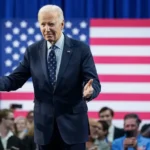
Published January 8, 2024
The confidence of European elites was shaken in 2023 as national populist parties surged in popularity across the continent. Their dismay may soon deepen into despair, as 2024 is shaping up to be the year European populism goes mainstream.
2023 was not a good year for the Brussels consensus despite favoured parties narrowly prevailing in the Polish and Spanish elections. Openly anti-Ukrainian leader Robert Fico’s SMER-SD party won handily in Slovakia’s vote, and the immigration restrictionist Finns Party entered government as part of the new center-Right coalition. Pro-consensus leaders won in Greece, Bulgaria, and Estonia, but populist parties either held their ground or gained strength in all three nations. No nation enthusiastically backed the Brussels status quo.
That consensus’ decisive rejection in the Dutch election was perhaps the strongest evidence yet that European voters are getting fed up. EU Green New Deal chief Frans Timmermans’ return to his home country to lead a newly united alliance of the GreenLeft and Labor Party (GL/PvDA) was hailed as a political masterstroke. New Party of Freedom Democracy (VVD) leader Dilan Yesilgoz’s campaign was considered to be a successful limited break with longtime VVD Prime Minister Mark Rutte’s cagey, centrist approach. Right up the eve of the vote smart money was on a VVD-GL/PvDA-dominated coalition with the only question being which of the two leaders would take the helm.
Instead, Geert Wilders’ strong victory showed that enough was enough. His Freedom Party (PVV)’s 37 seat haul massively exceeded any prior projections, but even this understated the Netherlands’ political earthquake. The Farmer-Citizens Movement (BBB) and Pieter Omtzigt’s creation, New Social Contract, took an additional 27 seats as VVD support collapsed by over a third. The four governing parties lost a combined 37 of their 78 seats. It was one of the largest rejections of a government in Dutch history.
Polls so far suggest populist and nationalist strength is continuing to surge across the European Union. Seats projections for the upcoming elections to the European Parliament show the ECR and ID factions winning between 172 and 184 seats, a record high. Add in unaligned nationalist populist parties such as Fidesz and Reconquete and the estimated total rises above 200. That’s not enough to displace the consensus coalition, but it does place additional pressure on the EPP to continue to shift rightward.
National elections pose an even brighter picture of populists. The Austrian Freedom Party (FPO) leads polls in advance of this year’s parliamentary vote, forcing the ruling People’s Party (OVP) to choose between yet another grand coalition or accepting second place in a center-Right coalition. Belgium’s vote looks even more threatening to the European center, as populists to the Right – Vlaams Belang and the New Flemish Alliance (NV-A) – and Left – the unreconstructed Communist Labor Party – look set to become the three largest parties.
Fall elections in three East German states pose even greater threats to the ruling class. The national populist Alternative for Germany (AfD) leads in all three. Indeed, in two – Saxony and Thuringia – polls suggest the AfD and either the party descended from the former East German Communists, Die Linke, or a Left-wing populist split from Die Linke formed by former leader Sahra Wagenknecht could form a majority themselves. If this trend continues, the longstanding policy of all establishment parties not to work with the AfD could fall.
This wasn’t supposed to happen. The COVID-19 pandemic was initially followed by a surge in support for incumbent parties, leading then-Chancellor Angela Merkel to say that the crisis had “exposed the limit of ‘fact-denying populism’”. Merkel proved to be as wrong about this as she had with respect to her immigration and Russia policies. On the contrary, the elites’ repeated lockdowns and over expansion of the money supply sparked fears about loss of freedom and created the cost-of-living crisis.
Elite obsession with climate change is also fueling populist support. A rapid transition away from fossil fuels inevitably costs money and places burdens on some groups more than others. Voter sentiment in Germany has forced the government to backtrack on some of its climate policy. Green party support declined in the Swiss federal and German state elections last fall. Populist parties gained as a result.
These trends mean that the European project is at a crossroad. It’s clear that voters increasingly do not want the economic and social policies that Brussels elites are selling. They want a stop to untrammeled migration, a return to broadly shared growth and prosperity, and increased national sovereignty. There are small signs, such as French President Emmanuel Macron’s recent support for an immigration bill that was approved only with support from Marine Le Pen’s National Rally, that elites are beginning to listen.
We’ve seen such behavior before, however, only to see establishment parties fail to deliver what they had promised. VVD’s Yesilgoz’s comments after her party’s surprising defeat – she said “the people had not been listened to enough” – were unintentionally revealing. Her party had led the government for the prior thirteen years; it was they who had closed their ears.
We shall soon see if the Brussels establishment finally listens and starts to include populist sentiments as a central part of the continental consensus. If it doesn’t, this could be the year the populist rumble turns into a clamour.
Henry Olsen, a senior fellow at the Ethics and Public Policy Center, studies and provides commentary on American politics. His work focuses on how America’s political order is being upended by populist challenges, from the left and the right. He also studies populism’s impact in other democracies in the developed world.









